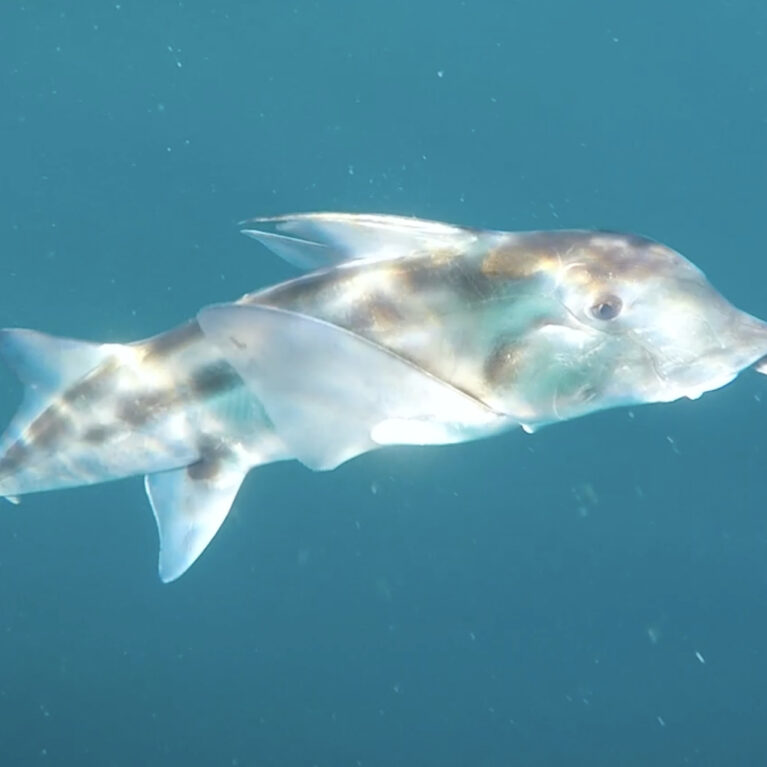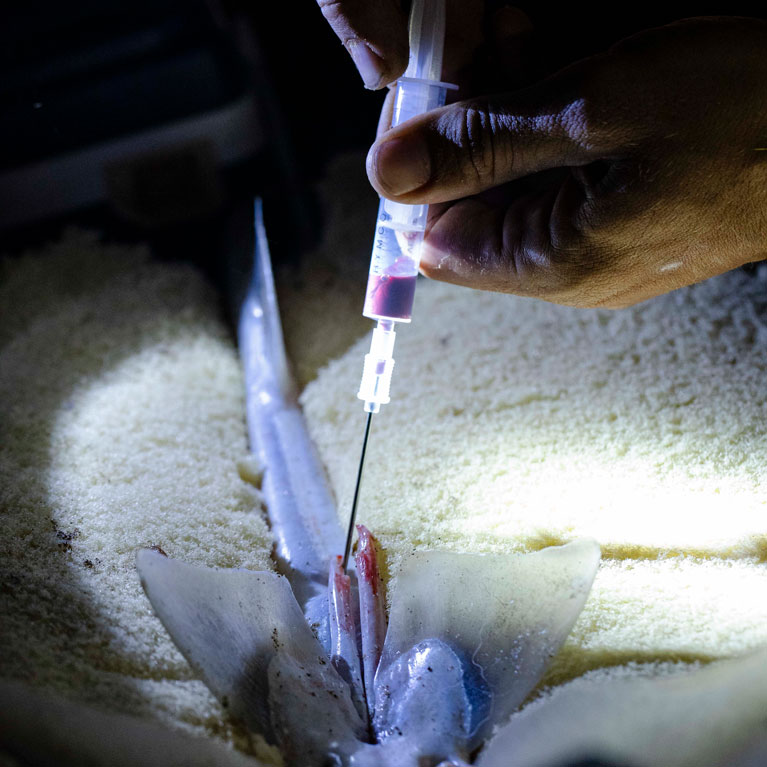Forecasting the future: pollution and sharks
Harmful pollutants in the ocean can disrupt the reproductive capacity of many species. That the future of sharks hangs in the chemical balance is a devastating thought – and it’s a scenario that Franco is trying to understand so that we have a better chance of mitigating it. He believes that the impact of marine pollutants is probably greater than we already recognise, but a lack of research mutes its real importance to us. By using the American elephant fish as a case study and assessing its reproductive health in polluted waters, this project hopes to set a baseline for future monitoring of ocean health.
Since childhood I have felt passionate about the oceans and marine life. This passion persisted through my formative years as a biologist, when I discovered the world of sharks, rays and chimaeras and I was totally smitten by this amazing group of fish. When I finished my degree I got involved in many shark conservation projects worldwide, such as the first tagging programme in Patagonia (Argentina), monitoring whale sharks in Cebu (Philippines) and a white shark conservation programme at Guadalupe Island (Mexico). After a long journey and different experiences, I now find myself pursuing a PhD in another subject I...



Hidden effects of marine pollution: the reproductive health of Chondrichthyans
To understand the impacts of marine pollution on the reproductive health and future reproductive success of sharks, rays and chimaeras.
It is crucial to conduct long-term monitoring of marine pollution in order to predict how populations that are fundamental to the conservation of biodiversity will fare in the future. By studying how pollution impacts the reproductive health of chondrichthyans, we will be able to foresee to what extent chondrichthyan reproduction is likely to be successful. Only if the species have the capacity to produce offspring can we be sure that they will be conserved over time.
Pollution from chemicals derived from human activities is increasing quickly and causing ocean conditions to deteriorate at an unprecedented rate. Marine animals are highly susceptible to pollution as they are in very close contact with the surrounding environment. One of the most distressing effects of marine pollution is the disruption of reproductive processes that are essential to the survival of a species over time. Unfortunately, many pollutants are capable of this disruption. For example, up to 12.7 million tons of plastic enter the ocean every year, leaching chemicals that are harmful to reproductive systems. The negative impacts of pollution on reproductive health have been reported for marine mammals, seabirds and fish, but very little is known about such impacts on sharks, rays and chimaeras (chondrichthyans), in which high concentrations of pollutants can accumulate. More than 30% of chondrichthyans are at risk of extinction and although overfishing is the primary threat, others such as pollution are recognised.
We believe that the threat of marine pollution is even greater than already identified, but is masked by the lack of research. We will study how pollutants can alter reproductive success by using the American elephant fish as a model. Understanding the impacts of pollution on the reproductive health of chondrichthyans will alert us to how the species will adapt – or not – to contamination of the oceans. Marine pollution is already happening and once the water has been contaminated it cannot be cleaned; the damage has been done. Our research will provide information about the impacts of marine pollution on chondrichthyans to decision-makers charged with keeping the oceans healthy.
To evaluate the impacts of marine pollution on the reproductive health of chondrichthyan species by:
- Assessing the reproductive health of American elephant fish living in contaminated waters; and
- Combining our results with information about the habitats and reproduction of other chondrichthyan species to forecast possible reproductive scenarios. In the long term we aim to use this knowledge as a baseline for further monitoring of marine health.

